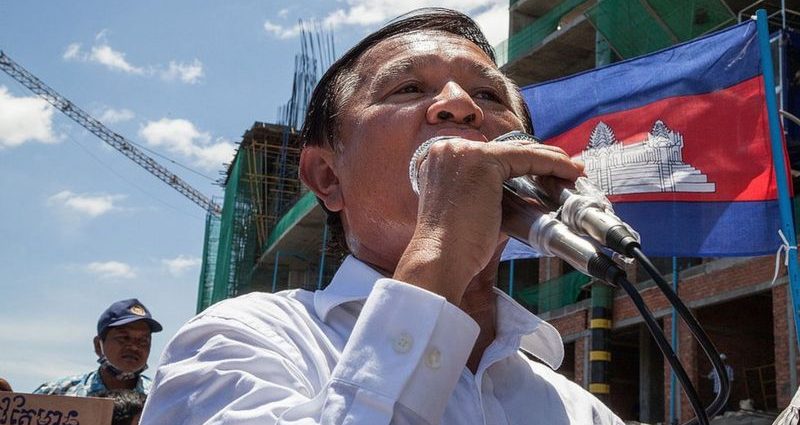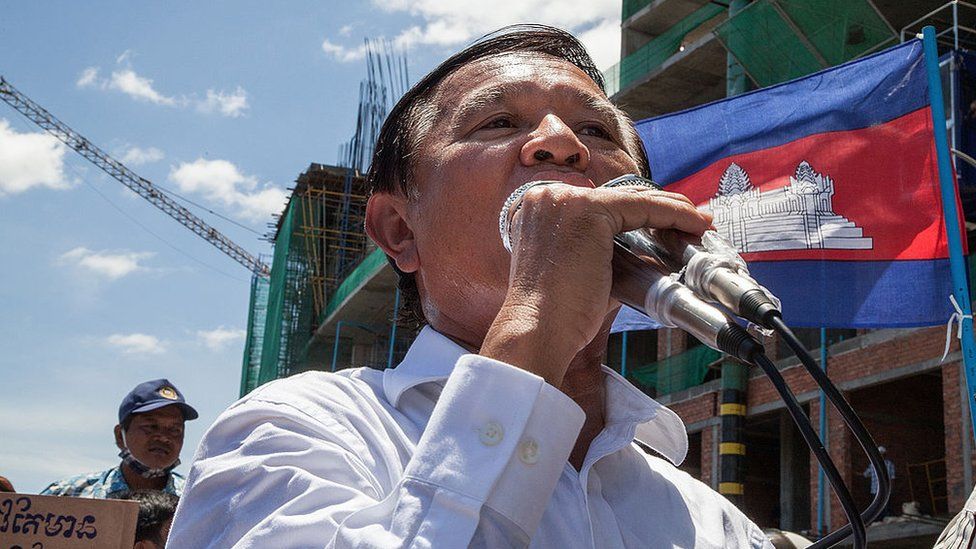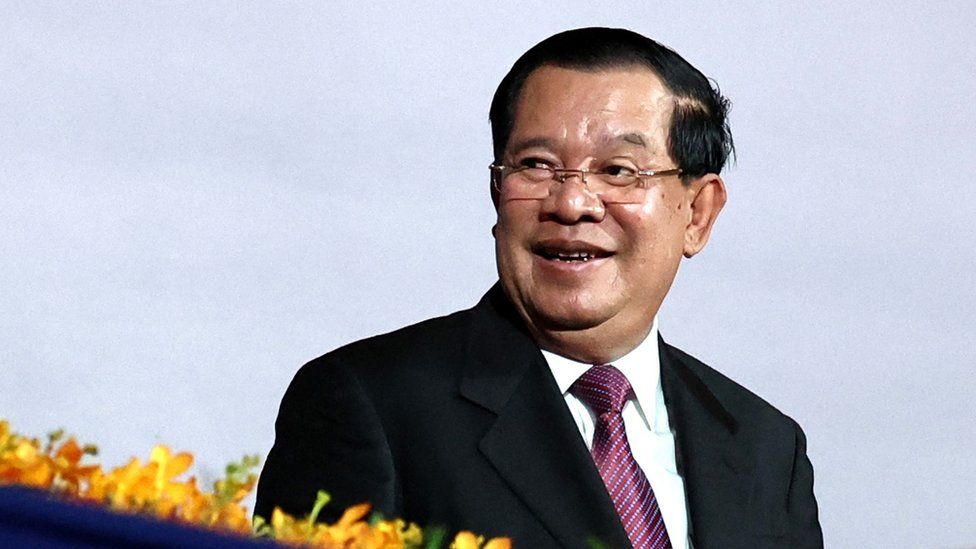
Cambodia’s main opposition party and the sole credible challenger to the country’s long-time leader Hun Sen has been barred from contesting July’s election.
Electoral authorities disqualified the Candlelight Party on Monday for not having the right paperwork.
Party insiders had warned for weeks they were being stymied by red tape.
Critics say with this move, Hun Sen has again eliminated any real challenge for the second election in a row.
In 2018, his Cambodian People’s Party won every single seat in the 125-seat National Assembly after the main opposition alliance was dissolved by the politically-controlled courts.
The Candlelight Party formed from the ashes of that dissolved opposition. The fledgling alliance formed a year ago and received just 22% of the vote in local commune elections last year – but still represented the most credible challenge to Hun Sen, who has ruled since 1985.
Cambodia, one of the poorest countries in Asia, holds a general election every five years.
However Hun Sen, one of the world’s longest-ruling leaders, has retained a stranglehold over power for 38 years.
The prime minister, 70, is seen as an authoritarian figure with a poor human rights record and the resources and will to thwart any real political challenge.
Leaders of the Candlelight Party had told the BBC earlier this month they were experiencing blockages trying to register for the election.
Party secretary Kong Monika said that new documentation rules for registration had not previously been required. He also noted the party had been able to contest last year’s local elections with no issues.
Candlelight party members have also reported a series of public assaults by masked men this year, some of which happened after party meetings, and once after a visit to the UN’s human rights office in Phnom Penh.
The crackdown on Candlelight also comes after Hun Sen sidelined a potential opposition figure, Kem Sokha, in March. He sentenced the former CNRP leader to 27 years in house detention on what rights groups said were trumped-up charges – ruling him out of July’s elections.
The disproportionately harsh judgement sparked global condemnation from Western nations and rights groups.
The UN Human Rights Commissioner said at the time that Hun Sen’s government “continues to suppress political opposition and independent media…. these actions seriously undermine the civic and political space, including the environment for free and fair elections in July”.
Hun Sen also ordered the shutdown of the country’s only popular independent news outlet in February, which had been the only publication to print news critical of the government.
For the last election in 2018, he used the politically-controlled Supreme Court to dissolve the Cambodian National Rescue Party (CNRP) a year before the election.
Analysts say the CNRP’s popularity had threatened to unseat Hun – as the party received at least 44% of the vote in 2013 and 2017 polls.
Along with the order dissolving the party, Hun Sen also used the courts to convict about 100 opposition party members of treason, prompting several of the movement’s most prominent leaders to flee into exile.
He then won every seat of the National Assembly – making Cambodia effectively a one-party state.
While he faced far less of a political challenge this year from the still-untested Candlelight Party, political observers say he has worked to crack down on any sliver of a threat, as he has indicated he may begin a transition of power to his eldest son after the 23 July vote.
Cambodia was supported by the UN and Western countries to become a liberal democracy in the 1990s, after the horrors of the murderous Khmer Rouge regime.
The UN and international monitors have long raised concerns about the legitimacy of Cambodia’s past elections after reports of vote stealing, electoral fraud and intimidation and threats to opposition lawmakers.
Human Rights Watch last month urged countries like Australia, Japan and EU member countries – who have financially supported election processes or conducted election monitoring in Cambodia – to publicly raise concerns about rights abuses against political opposition before the July election.
-
-
27 July 2018
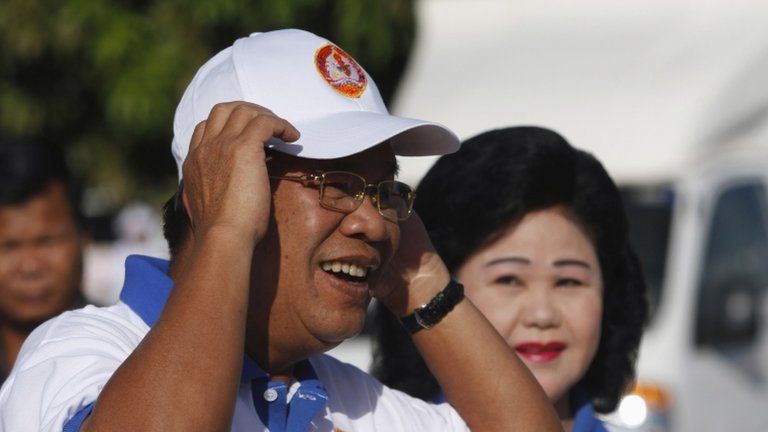
-
-
-
16 November 2017
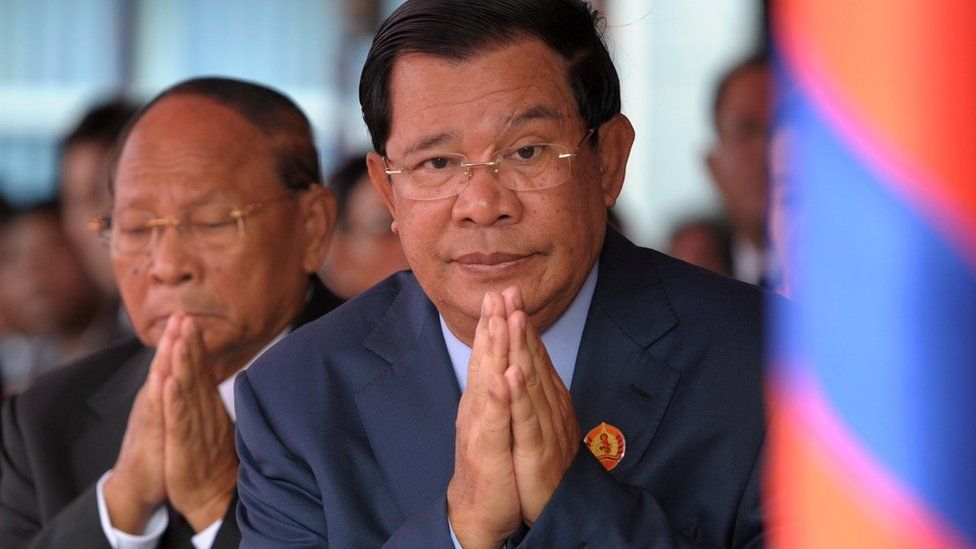
-
-
-
30 July 2018
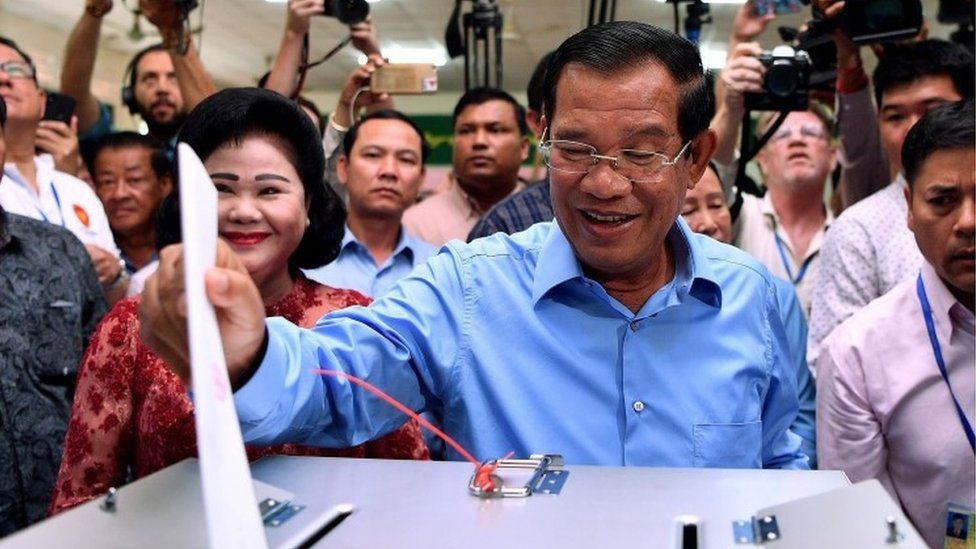
-

